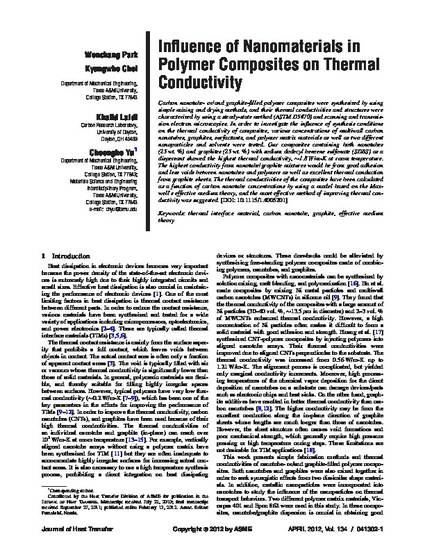
Carbon nanotube- or/and graphite-filled polymer composites were synthesized by using simple mixing and drying methods, and their thermal conductivities and structures were characterized by using a steady-state method (ASTM D5470) and scanning and transmission electron microscopies. In order to investigate the influence of synthesis conditions on the thermal conductivity of composites, various concentrations of multiwall carbon nanotubes, graphites, surfactants, and polymer matrix materials as well as two different nanoparticles and solvents were tested. Our composites containing both nanotubes (25 wt. %) and graphites (25 wt. %) with sodium dodecyl benzene sulfonate (SDBS) as a dispersant showed the highest thermal conductivity, ∼1.8 W/m-K at room temperature. The highest conductivity from nanotube/graphite mixtures would be from good adhesion and less voids between nanotubes and polymers as well as excellent thermal conduction from graphite sheets. The thermal conductivities of the composites have been calculated as a function of carbon nanotube concentrations by using a model based on the Maxwell’s effective medium theory, and the most effective method of improving thermal conductivity was suggested.
Available at: http://works.bepress.com/khalid_lafdi/9/
